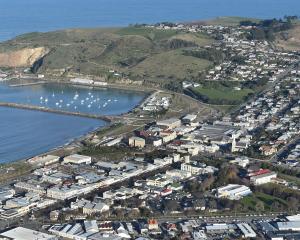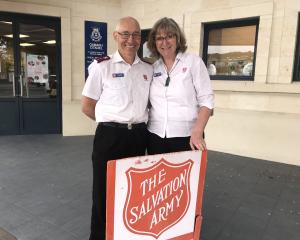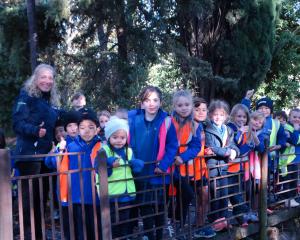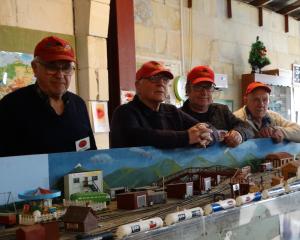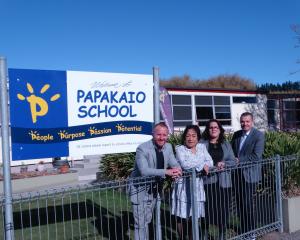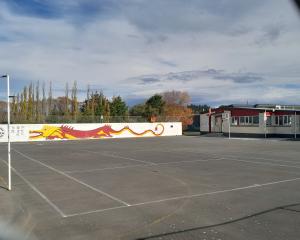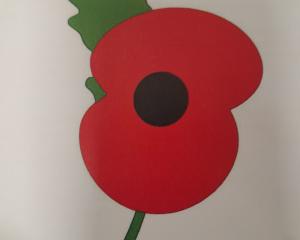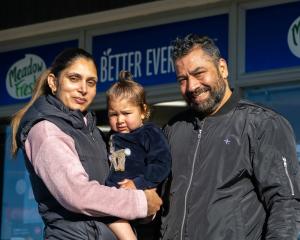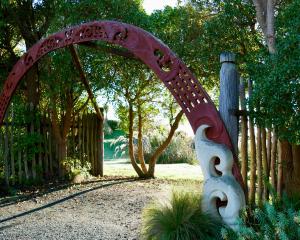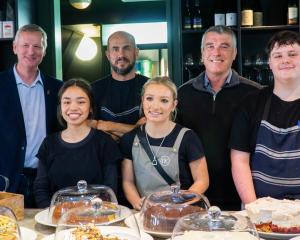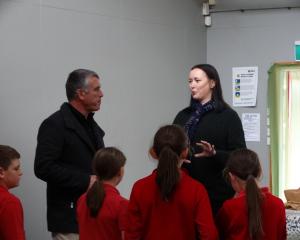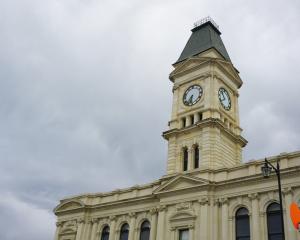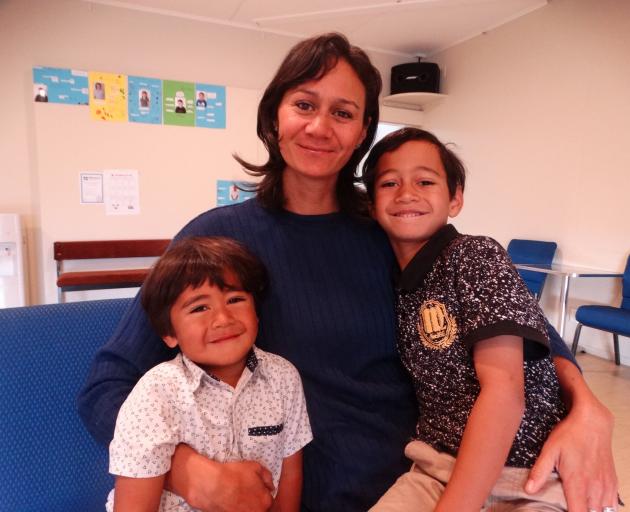
WellSouth is the primary health network that operates in Otago and Southland and funds The Milk Room and The Breast Room which deliver the breastfeeding programme that offers women and their families volunteer breastfeeding supporters.
The breastfeeding programme provides parents help with common concerns around breastfeeding and supports parents in their infant feeding choices.
Breastfeeding Peer Supporter programme manager Denise Ives said there was a shortage of breast supporters. Mrs Samuelu was one of seven people beginning the training this month.
Miss Ives said Mrs Samuelu exhibited qualities that were necessary for a peer supporter.
"From the conversations I’ve had with her and when I’ve met with her, she seems to communicate in a very kind and gentle way.
"She’s able to be quite non-judgemental in the way she speaks about things and is able to listen and take in things that people are saying without dominating the conversation herself, which is very important for a peer supporter."
Miss Ives said studies had shown that when parents were supported by peers, it could really help with the success of their breastfeeding and their confidence and how good they felt about it.
Mrs Samuelu, a mother of two, is passionate about breastfeeding and helping new mums through those challenging stages of being a new parent.
She hoped to help other women, but also looked forward to expanding her knowledge and respecting different choices. A diagnosis of cervical cancer meant she was unable to breastfeed with her second child while she received treatment.
"I hope to help others, being such an advocate for breastfeeding. I’m wanting to help others to hopefully arrive there.
"But then, also, it’s everyone’s own choice and it’s about how to support those mothers respectfully when they choose a different option."
After her own experience as a breastfeeding mother she wanted to provide that knowledge to others.
"The biggest thing for me was just the societal pressure and confusion, when you have a whole lot of information coming from different places.
"If I had had someone that I could have turned to immediately [after] — or even prior to — giving birth, it could have been a much easier transition, "Mrs Samuelu said.
The experience of breastfeeding was "eye-opening" for her and her husband.
"Understanding what happens in the process of milk production, you know when you give birth.
"It’s just knowing how to support your body into helping that happen a little easier."
Some early memories of motherhood had prompted her to want to be a peer supporter.
"I do remember being in tears in the shower and my mum saying ‘your baby’ — it brings tears to my eyes — ‘your baby is crying and needs you’. It was really hard.
"Back in the day, you had all that support around you, you had your mother, aunties and grandmother. You’ve got all that knowledge there but nowadays we don’t live like that any more. So we do have to fill that gap."
Mrs Samuelu grew up in Oamaru and moved back with her husband in 2022 after living in Spain for 13 years.
Before having children she studied psychology and business management.
After having children she had been interested in doing lactation support study "in some form" and was passionate about the positive effects of breastfeeding.
"You’re less likely to suffer from postpartum depression and for the child’s emotional and physical [wellbeing], it builds their immune system and you get that skin-to-skin contact regularly, which helps not only with mum’s emotional wellbeing with the hormones released, but the child themself.
"There is less crying," she said.
As a Tongan/NZ European woman she appreciates "the huge Pacific Island community in Oamaru".
Her goal this year is to learn Tongan to help communicate with Pasifika women who need support.
"It’s important to attract some other Pacific Island women to come in to do the training, to become a vocal support and a support that is visible in the community as well," she said.
Breast Supporter training begins on April 20 and runs for over eight weeks at Reach Church.

